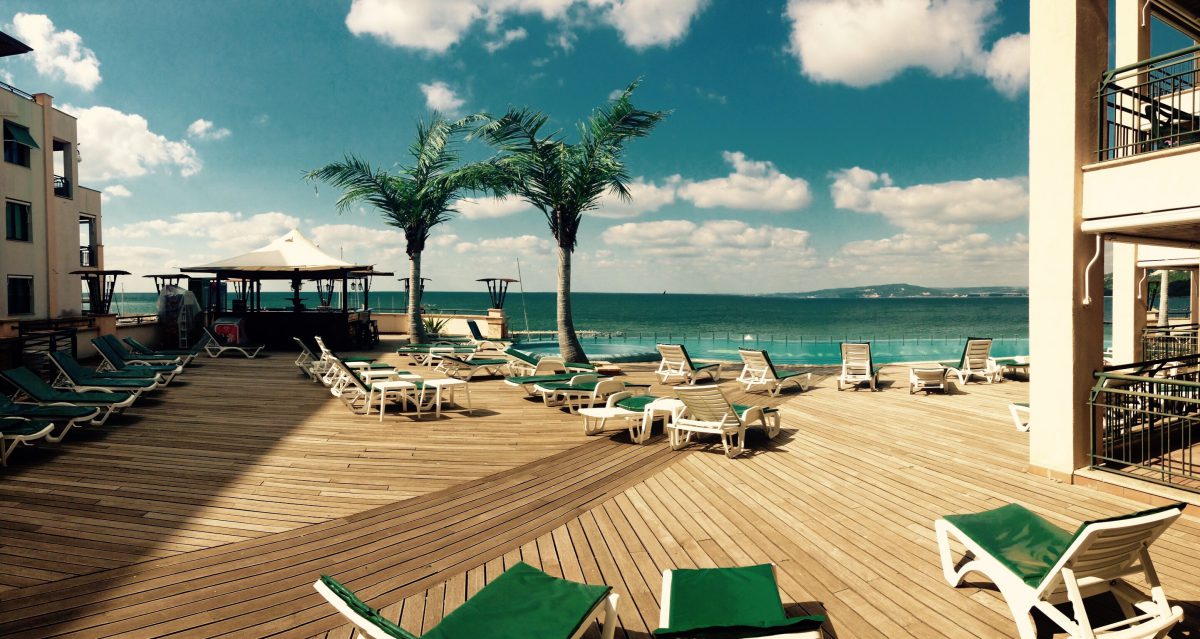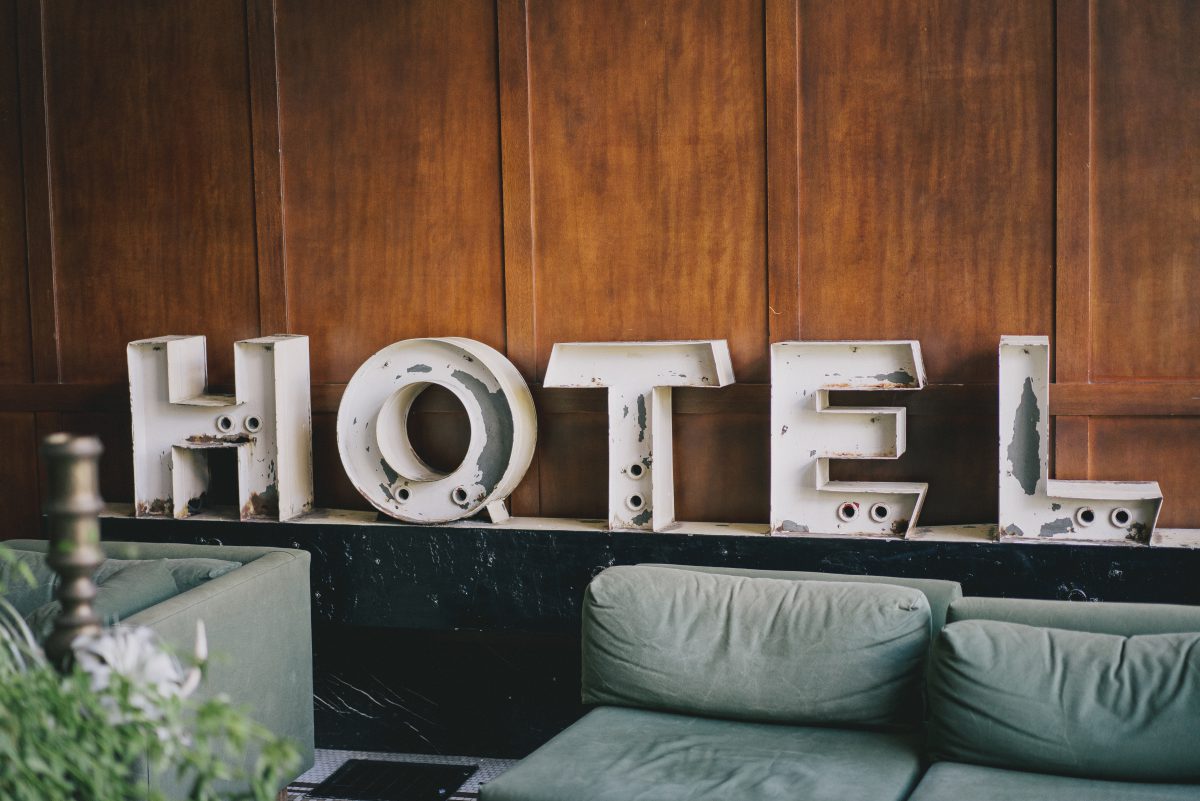Managing the reputation of hotels in the digital age is its own animal. With multiple channels of engagement and bookings come multiple opportunities for strategic management — and, equally, the risk of having one important piece of the puzzle go awry.
With the industry turning to online sales and lead management systems for everything from bookings to traffic and marketing, it can be easy to forget that hotels operate in the hospitality industry.
But just because the primary sphere of operations and reputation management has shifted doesn’t mean that hotels can forget this one crucial rule. In fact, with the turn to digital operations, hotel reputation management stands to benefit from things like newly emerging review sites, social media platforms and search engines.
These simultaneous spheres of reputation management matter when it comes to the overall success of accommodation facilities.
Revenue management
For hoteliers, B&B owners, vacation rental owners and the like, revenue management is intricately connected with review sites. Why? Like restaurants offering a unique experience through a combination of customer service, cuisine, and ambience, these accommodation facilities also promisean experience.
In simplest terms, hotels and other accommodation facilities must rely on bookings — which is, essentially, a volume of sales. They can certainly increase or decrease a price, based on availability and demand, for a room.
But their overall revenue relies heavily on whether their property’s reputation is one that inspires trust and confidence from a traveller.

Photo by Carlos Muza on Unsplash
Review portals are where reputations are being built, burnished or tarnished. And this, of course, also has a longer-term effect of web rankings and search engine visibility.
Reviews matter. According to a study by TripAdvisor, more than half of global respondents say they won’t make a booking until after they’ve read more than a few reviews, figuring out what previous travellers thought of the entire experience.
In response to reviews, reputation management should focus on actually engaging with problematic feedback. The study also found that:
- 87% of users say that if management were to follow up with an empathetic response, it “improves my impression of the hotel”
- 70% of users agreed that a defensive response, on the other hand, “makes me less likely to book that hotel”
- Overall, however, any response is better than none: 62% of users say that seeing responses to reviews helps as it “makes me more likely to book it”
Clearly, the key to success for managers of accommodations, when considering revenue, is to focus instead on being proactive with their end customer — the traveller. Instead of a liability, it’s useful for managers to look at the explosion of review portals as an opportunity to build relationships with customers in a more direct way.
RevPAR
If reviews are intimately tied into revenue management and a hotel’s reputation, how can we quantify it in order to improve on it?
Luckily, there’s a KPI for that and it’s called “RevPAR”. As industry-insiders will know, RevPAR “is a measurement of both a hotel’s average daily rate and its ability to actually fill those rooms.”
Since RevPAR gives accommodations managers a sense of current performance while also making a recommendation on how much to charge for a room, this KPI is not only a measurement, it is a metric that can be used to optimise revenue.
While a low occupancy rate, for example, would tell accommodations managers to reduce the rates for a period of time, a higher RevPAR number might indicate room for increase. But it doesn’t rely on occupancy alone — it also relies on the overall revenue created per room. So, a larger hotel who’s margins are much larger might have a lower RevPAR but a higher overall revenue.

Photo by Alexander Videnov on Unsplash
A consistently low RevPAR number, especially for a smaller property, could prove to be problematic. But it’s the first sign of something needing to be addressed. RevPAR is the visible metric of revenue management which, as we’ve seen, is directly linked to “review” and “response” management.
OTAs
Part of hotel reputation management is managing, populating and updating OTAs. Online travel agencies, as they’re better known, are spots like Booking.com, Expedia, Hotels.com, Travelocity, and Priceline, amongst others.
Besides being able to book and find deals using these portals, travellers can also visit the reviews section or make use of a reviewing tool on any of these sites. How can accommodations managers decide which to respond to?
Even though many OTA sites say that they provide “verified” reviews, cutting down on the number of fraudulent reviews, the level of scoring is still quite arbitrary. This means that the experience of staying in a property could be quite subjective.
Because of this, hoteliers and property managers are encouraged to respond to views that are specific in their feedback, giving detailed information as to an incident or issues directly relating to the hotel (not necessarily other aspects of the trip).

Photo by Anete Lūsiņa on Unsplash
OTAs, like RevPAR, can also be a useful metric — albeit, a qualitative one, rather than a quantitative one. If a RevPAR number returns low, for example, accommodations managers can use feedback posted on OTAs to check the pulse of their reputation, so to speak. In this way, they can use OTAs not only to funnel new bookings; hotels, B&Bs or vocational rental owners can list an extra room on major OTAs. Since the ranking online will be based on the overall authority of the OTA, not the hotel, a new listing can help override an outlier negative review.
Customer loyalty
Responsiveness is one way to capture a customer’s loyalty. But nothing beats a face-to-face, human- to-human connection.
When it comes to reputation management, it’s a good idea for accommodation managers of any format to go the extra mile and give it the personal touch. Take the time to walk around the facilities, interact with guests, and engage in conversation — online and offline.

Photo by Crew on Unsplash
Customer loyalty, however, is built on multiple channels — both in the physical, experiential world and in the digital plane. As such, every manager’s in-person efforts must be supported with analytics software that is able to market effectively as well as offer incentivised bookings and customised offers that take the most granular details under consideration.
For example, a robust platform would be able to automate booking, capture the details of a guest’s experience within a room, noting down any discount initially offered, how quickly they booked, what they might have ordered, any preferences they requested and then create a compelling offer a few months down the road. It would also have to include a follow-up sequence — all from the vantage point of not just hooking the customer but having them return.
Brand equity
This all leads to one final and overarching goal: Brand equity and recognition.
Building a reputation online is one thing but managing and maintaining it is an everyday task that requires consistent actions.
A study by Hotel Advantage finds that there are three components to building a reputable hotel or accommodations brand:
- Listening and responding to guest reviews
- Building your community and content
- Upgrading your visual presence
Above this, ROI on social media, the study finds, only begins at 6 hours a week — and that’s six hours of meaningful and live interacting, content creation and commenting, besides strategic efforts like sponsorships and ads.
The study also finds that:
- Unfavourable reviews are the primary driver in lost bookings
- Companies that achieve the best customer service ratings are able to, through a combination of marketing and outreach, minimise the amount of time between learning about a customer’s needs and taking action on it.
At the core of every hotel’s reputation, then, is guest satisfaction. And even something as large as brand equity and recognisability can come down to employees, who are the frontline of a customer’s experience.
In other words, a brand does not only comprise a customer’s experience but its strength is also a testament to an employee’s satisfaction and commitment toward the brand.







